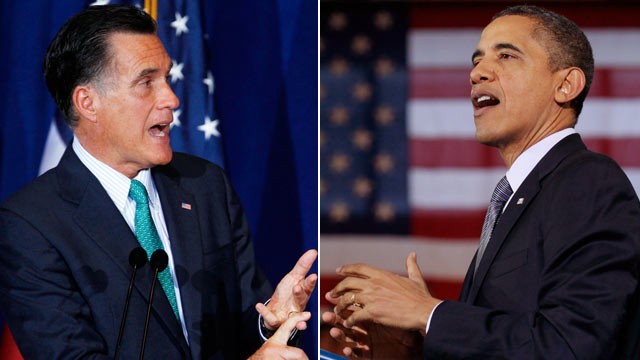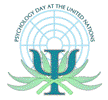Columbia University Teachers College Psychologist Examines How the Candidates' Convention Talk Appealed to Voters' Emotions
Issues like jobs, taxes and war surely affect how people vote, but research shows that people cast their ballot based on emotional reactions to candidates.
Some political analysts have suggested that both the Republican and Democratic conventions left people confused about whether the party in power has created more jobs or fewer, and unsure about the answer to the question, "Are you better off now than four years ago?"
So how did the candidates stack up with regard to feelings? Was it any clearer?
In revealing personal aspects of their marriages and family lives in their convention speeches, the candidates seduced us by making us yearn for aspects of healthy relationships.
Here's how the candidates scored on dimensions of healthy relationships, as outlined in my book, "The Compete Idiot's Guide to a Healthy Relationship":
Mitt Romney
Heart
Republican presidential candidate Mitt Romney's opening comments in his campaign acceptance speech at the Republican National Convention in Tampa, Fla., on Aug. 30, defined his running mate Paul Ryan first as "a man with a big heart," and later as a "caring" leader, earning Romney a score of "7."
Surveys show that "caring" is a top personal quality women seek in a partner. Just as the heart provides essential lifeblood, a big heart indicates highly desirable generosity and compassion. These qualities humanize Ryan as well as Romney, himself -- highlighting softer, loving traits.
Unconditional Love
Romney's definition of his parents' unconditional love, as if straight out of a psychology textbook, earned him an exceptionally powerful score of "10." Unconditional love is the best foundation parents can provide for a child's growth, self-esteem and confidence in pursuing their dreams.
"My mom and dad gave their kids the greatest gift of all -- the gift of unconditional love," Romney said. "They cared deeply about who we would BE, and much less about what we would DO."
Such support is often out of adults' reach, constricted by criticisms and judgments, yet it is an ideal to strive for. In parenting with unconditional love, disapproval can be directed at a behavior, not who the child IS.
Similarly, love between partners should not depend on what you look like, earn, do or say, but be extended for who you are inside as a person.
Love
Love heals and nurtures.
"All the laws and legislation in the world will never heal this world like the loving hearts and arms of mothers and fathers," said Romney, earning him a score of "10" for elevating love over power or rules. "If every child could drift to sleep feeling wrapped in the love of their family -- and God's love -- this world would be a far more gentle and better place."
Indeed, putting children to bed and waking them up with a cheerful and loving spirit prepares them to grow up being kind and peaceful adults.
Couples should do the same for each other to be better able to face inevitable stresses of the day. Loving and feeling loved reduces anger that fuels aggression and attempts at control.
Romance
All couples want to know the "secret" to an enduring relationship and love life. In his acceptance speech, Romney revealed the "secret" to his parents' 64-year marriage, evidenced by the sweet gesture of the rose left daily by his father for his mother -- a sweet tip worth a score of "6."
A calendar of romantic acts is one of the many tips outlined in my book, including simple daily romantic words or actions, like a loving note tucked in a briefcase or lighting a candle over dinner.
Partnership
Achieving "true" partnership, being "there" for each other, is one of the true tests of love outlined in my book.
Romney provided a top-notch example of this, earning him another score of "10," when describing how when his "mom ran for the Senate, my dad was there for her every step of the way."
Such support is an excellent example for all American couples.
Respect
Respect for and honoring of women is evident in Romney adoring his mother's "beautiful voice," in his hiring women, his appreciating the value of his wife, Ann Romney, in her role as mother (even in contrast to his own "job" as breadwinner), and also in his adoration of and loyalty to her in times of trouble. The image of Romney hugging his wife as they heard her diagnosis of multiple sclerosis was a true display of a healthy relationship, in stark contrast to pervasive unfaithfulness suffered by so many American couples (and certainly to the betrayal of a previous high-level political candidate in the face of his wife's tragic struggle with cancer).
Fulfilling the promise of being loyal "in sickness and in health" is a fundamental characteristic of a deeply loving, long-lasting and healthy relationship. Romney's display rates a score of "10" because such loyalty inspires trust -- shown by surveys to be a top quality desired by couples and essential for a healthy relationship.
Deep Connection
Creating a sense of family provides a secure foundation to grow and function in today's stressful world. In the face of high divorce rates and all-too-common fractured families, few can resist the endearing image of a parents' bed invaded by five rambunctious young sons -- as Romney described one of the joys of parenthood for he and wife, Ann. It evoked an image worth a score of "6."
Short of that ideal, couples can create extended families to develop deep connectedness that contribute to thriving.
Barack Obama
President Barack Obama didn't have to say much about his marriage to his wife, Michelle Obama, in his acceptance speech for the Democratic nomination on Sept. 6 in Charlotte, N.C., because she did it all for him. Her widely touted speech two days earlier delivered a public love letter likened to none in the history of presidential conventions.
In her testimonial, she said, "Today, I love my husband even more than I did four years ago ... even more than I did 23 years ago, when we first met."
She also used a magic word that seals a healthy relationship, according to hundreds of surveys: trust.
"I love that we can trust Barack to do what he says he's going to do, even when it's hard -- especially when it's hard," she said.
The first lady also praised "unconditional love" from her parents, just as Romney did the week before. The use of this professional term so soon after Romney's use of the same made me wonder whether she or her speechwriters knew the positive psychological impact that allusion would have.
With such a testimonial, Obama didn't need to say as much directly about his wife and marriage as Romney did. He needed only to open his speech with a solid affirmation of love that therapists recommend to all couples: Turn to your partner directly and say how you feel.
Love Declarations
"Michelle, I love you so much," Obama said, looking directly at his wife in the front row.
The three simple, magic words -- "I love you" -- are what so many women desperately want to hear their man say directly to them. Those are also the three magic words so many men and women fear saying, or forget to say after years of being together.
His words were made even more powerful -- worth a score more than "10" so I gave it a "12" -- by adding the words "so much," and by using the partner's name, as Obama did, saying, "Michelle, I love you so much."
Obama scored higher than Romney in his opening remarks by addressing his wife first, instead of first pointing out the positive qualities of his running mate.
Appreciation
Continuing his avowal to his wife and letting us all in on it, the president continued, "A few nights ago, everyone was reminded just what a lucky man I am."
Such recognition is a partner's dream. It added "7" more points to his score.
As therapists advise, bump up your appreciation with using additional simple, but magic, words: how lucky you are. The more you let everyone know how lucky you are to have your partner, the more she glows from being so adored and valued.
Recognition
Everyone likes to be acknowledged and praised for what they contribute to a relationship and that they provide valued support in their partner's life.
The president did that deftly, saying, "[It] wasn't about me. It was about you," and adding, "You're the reason a young man in Colorado who never thought he'd be able to afford his dream of earning a medical degree is about to get that chance. You made that possible. You're the reason a young immigrant who grew up here and went to school here and pledged allegiance to our flag will no longer be deported from the only country she's ever called home; why selfless soldiers won't be kicked out of the military because of who they are or who they love."
The passage earns a "7" for evoking imagery of reaching dreams, being home, loving whom you choose. It pulls at heartstrings.
Need
In saying, "I'm hopeful because of you," the president expressed a kind of dependence that is healthy in a relationship.
Couples crave knowing that they're needed and like being asked to help. Obama's appeal was even more direct when he said, "Help me recruit 100,000 math and science teachers in the next 10 years, and improve early childhood education."
His expression of need was worth a score of "6."
Partnership
The partnership Romney described in his parents' marriage, Obama extended to us.
"I'm proud of what we've accomplished together," he said, drawing us in. His reassuring us that, "We will pull each other up," earned him another score of "6." Being given credit and being reassured of being part of a team in success intensifies a bond.
Commitment and Destiny
Other words and phrases that stand out in the president's speech, even buried within more political points, evoke allusions to healthy relationships -- words like "commitment" and phrases like "our destinies are bound together."
Commitment is essential in love, and feeling tied by forces stronger than yourselves intensifies the bond. Each one earns a score of "3 1/2" (which would be more, if elaborated), for a total of "7."
Apology
Perhaps one of the most risky, yet also essential, aspects of a healthy relationship is admitting your own inadequacies or failings, and how you've let the other person down. It takes great courage and Obama showed it -- earning score of "10" -- when he said in his speech, "You can be disappointed with me," and "I'm far more mindful of my own failings."
Quoting President Lincoln, he said, "I have been driven to my knees many times by the overwhelming conviction that I had no place else to go."
Such admissions are essential for any partner to agree to move forward in a relationship -- affirming the relevance of "forward" as the president's reelection campaign theme.
"We will learn from our mistakes," he said.
Apologies have to happen before a betrayed partner can regain trust and agree to give the transgressor another chance -- like Obama is asking the American public to do, in the face of broken promises and disappointment in his performance.
Romney vs. Obama: The Love Scale Score
Score 59 for Romney and 55 for Obama on the love scale.
Joe Biden's Love Address
Interestingly, Vice President Joe Biden took a similar tact to the president in his convention speech with an opening comment directly declaring devotion to his wife. Like Obama, he addressed her by name, and used those three simple magic words: "I love you."
Expanding the romance, he let us deeper into his boudoir talk, with a poetic twist, when he added, "You're the love of my life and the life of my love."
What woman would not be seduced by the thought of a man so wildly pursuing her love?
Unashamedly, Biden declared in his speech how thrilled he was to hear his wife say publicly in her address at the convention, "I've always loved you." Here was a man admitting his relief in being told he's loved, after a history of five pleas before getting her nod.
Another healthy relationship move the V.P. did: value your wife's career -- again, the more publicly the better.
The happiest spouse will say, "He helps me be who I really want to be," and, "He tells the world how wonderful I am."
Biden's acknowledgement of his wife's accomplishments as a teacher would make any female voter think, "I want a man like that in my life."
In the past, President Obama has also admitted to pursuing his wife before she finally gave in and dated him.
A man willing to be vulnerable and admit his pursuit of being loved is appealing indeed. So is the Romney story of childhood sweethearts in long-lasting love.
With the American people suffering so much from fractured families and financial woes, the candidates would do well to invoke these qualities of healthy relationships in their race for the hearts of Americans.
Judy Kuriansky is a clinical psychologist and couples counselor who goes by the name of "Dr. Judy" and is well known for dispensing advice on the radio. She has donated to a Republican presidential campaign in the past. The opinions expressed here are her own.
 Tuesday, November 6, 2012 at 11:59AM
Tuesday, November 6, 2012 at 11:59AM 






